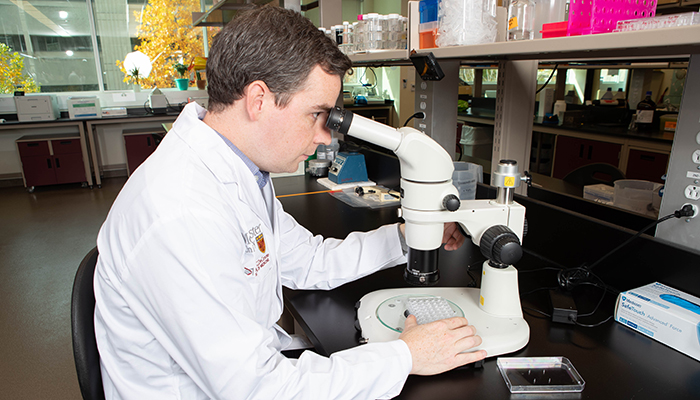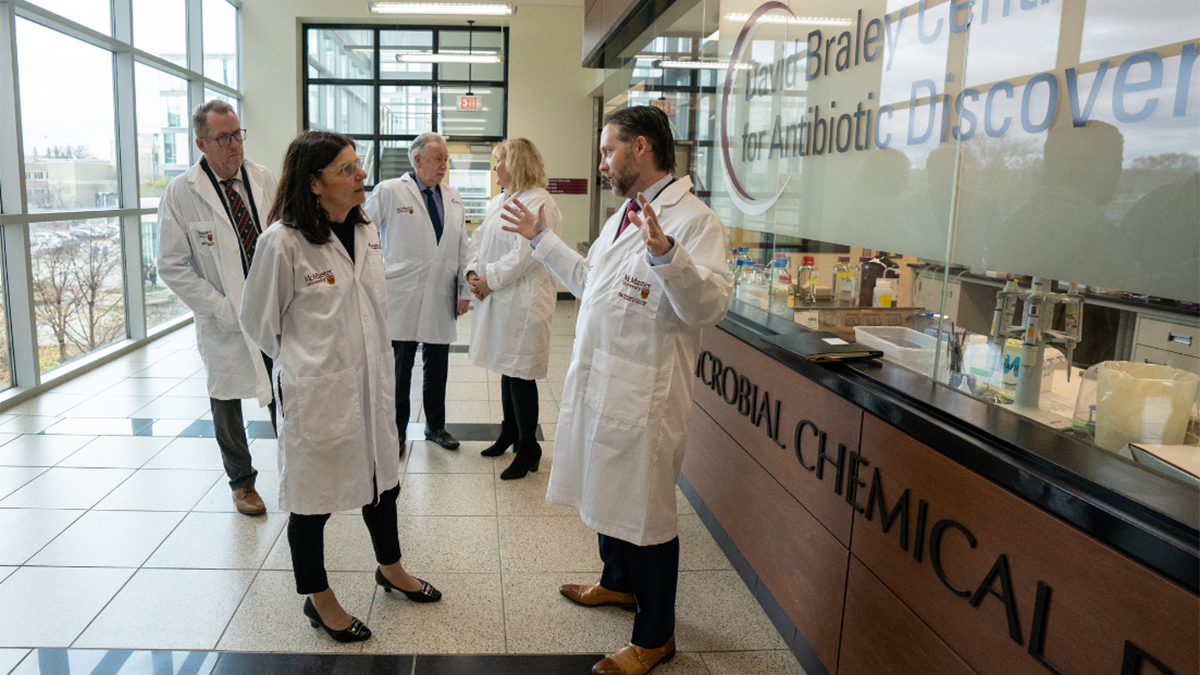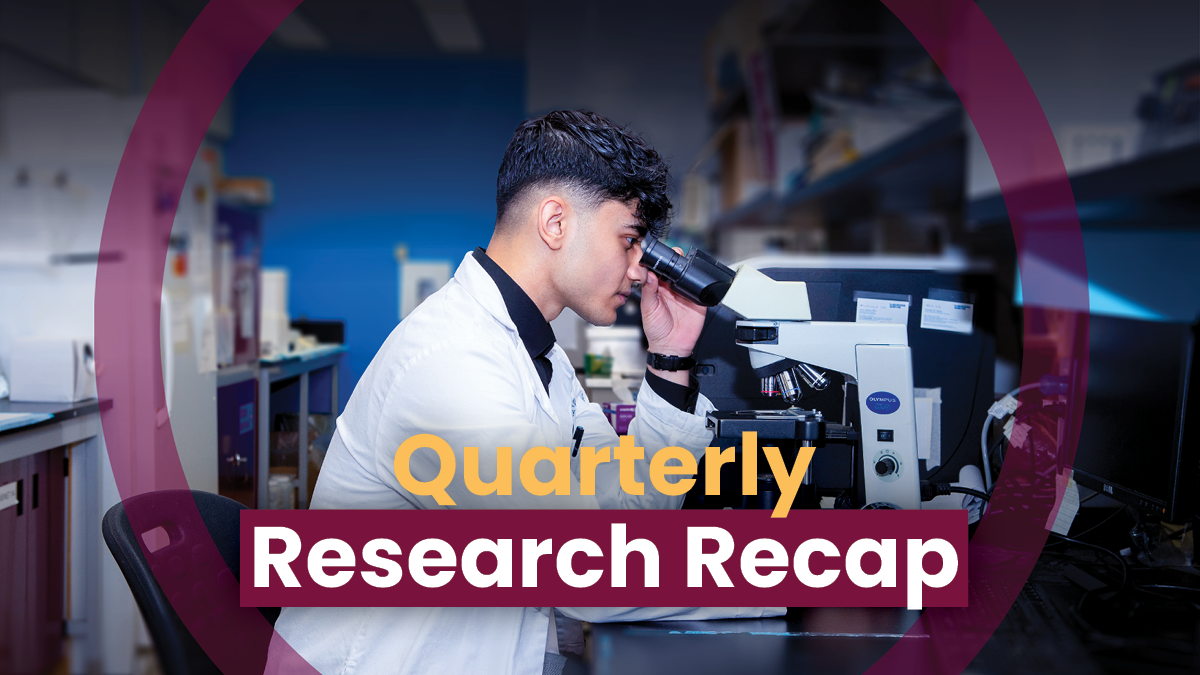McMaster researcher receives $1.5M for international study of microbial communities

An international team of early-career scientists, which includes McMaster University’s John Whitney, has received more than $1.5 million in funding from the International Human Frontier Science Program Organization (HFSP).
An international team of early-career scientists, which includes McMaster University’s John Whitney, has received more than $1.5 million in funding for an ambitious new research project.
The International Human Frontier Science Program Organization (HFSP) has awarded the group with three years of funding to explore how groups of bacteria, called biofilms, cooperate with one another.
“This grant gives us the resources to study a really interesting microbial phenomenon,” said Whitney, an assistant professor in the Department of Biochemistry and Biomedical Sciences and a member of the Michael G. DeGroote Institute for Infectious Disease Research.
Whitney, who joined McMaster in 2017, explains that biofilms occur when groups of bacterial cells assemble into communities, and that the individual cells within these communities specialize to perform different tasks. Just as a functioning human society needs electricians, plumbers, doctors, and more, biofilms need bacteria that perform a number of different activities in order to thrive.
These ‘communities,’ Whitney says, are a very common form of microbial growth that are often recalcitrant to physical removal and are resistant to medications like antibiotics. He believes that better understanding the mechanisms through which they function could result in the ability to target specific priority pathogens, which could have an array of benefits over existing pan-targeting approaches.
Whitney will be collaborating on this project with co-investigators William Durham (University of Sheffield), Julien Bergeron (King’s College London), and Boo Shan Tseng (University of Nevada, Las Vegas) — the latter two of whom were postdoctoral fellows with Whitney at the University of Washington in Seattle, where he trained after earning his PhD from the University of Toronto.
Comprised of a physicist/mathematician, a microbiologist, a biochemist, and a structural biologist, the team is highly interdisciplinary, something Whitney believes will enable a unique, holistic approach to studying biofilms.
“The HFSP has a strong inclination to fund work that allows different disciplines of science to interact with one another,” Whitney said. “Working together across disciplines will allow us to tease apart the many different pathways that give rise to the complex biological process of bacterial biofilm formation.”
This grant is one of seven early-career awards administered by the HFSP.
Collaborations & Partnerships, Dept. Biochem, FHS, Funding, Research
Related News
News Listing

Government of Canada invests $4M in McMaster to fast-track regional drug discovery initiatives
Global Nexus, Michael G. DeGroote Institute for Infectious Disease Research, Research
3 hours ago

McMaster researchers find talk therapy, rehabilitation likely improve long COVID symptoms
Dept. Anesthesia, Research
9 hours ago

1 day ago
